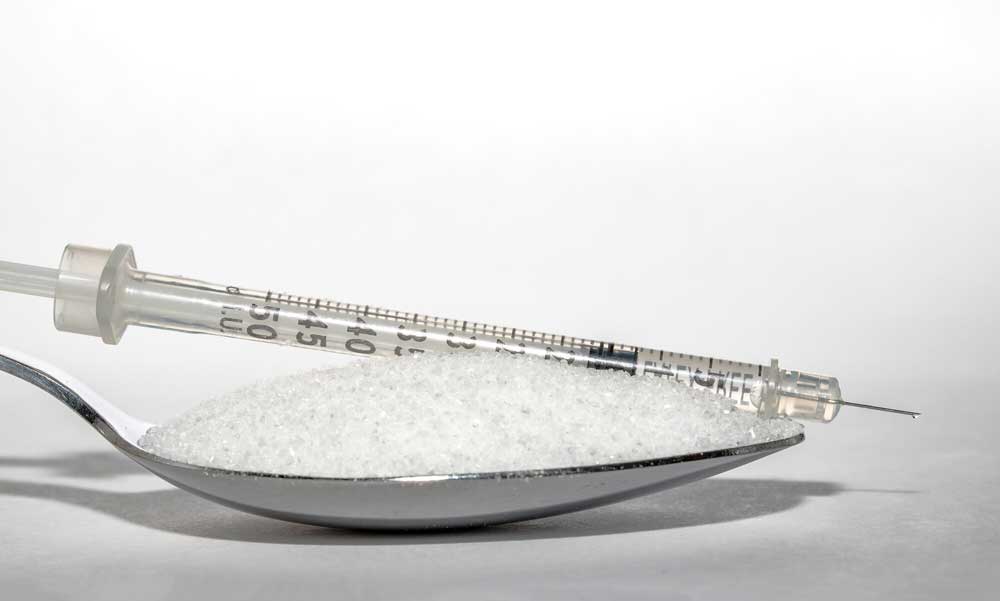If you’re feeling tired, can’t concentrate, or just can’t seem to lose that pesky belly fat, you may want to check your cortisol levels.
Cortisol is a hormone that is key to the body’s stress response. While a little cortisol is beneficial—even essential—as a motivator and energy booster, too much of it can be detrimental to your health.
Keep reading to learn more about the relationship between cortisol and weight gain, so you can better manage your weight and have a healthier lifestyle.
What is Cortisol?
Cortisol is one of the main stress hormones the body releases when faced with a stressor.
Back in the days of hunter-gatherers, these stressors typically consisted of wild animals and other similar dangers. Cortisol would give a boost of speed, focus, and strength to help overcome these dangers. This is what we know as our fight-or-flight response.
What Causes Abnormal Cortisol Levels
In modern times, the body reacts in the same way to the consistent barrage of stressors found in most people’s packed schedules. These include:
- Constant email and text notifications
- Rush-hour traffic
- Work schedule change
- Mental or physical overworking
- Financial concerns
- Medical issues
- Overexercising
- Too much caffeine
- Too much sugar and carbohydrates
- Too little sleep
- Frequently skipping or delaying meals
The issue is a person’s body cannot tell the difference between actual danger and a stressor. That is why a person’s body may react the same way to giving a presentation at work as it would to getting attacked by a wild animal.
Cortisol and the Sleep Cycle
The release of cortisol is closely related to the body’s circadian rhythm.
Within the first 30 to 40 minutes of waking up, about half of your daily cortisol is released by your body. It then gradually falls throughout the day under the control of the pituitary gland and hypothalamus.
Ideally, a person’s cortisol levels will be lowest around midnight, but this is unlikely to occur if they are still awake. For this reason, many recommend going to sleep before midnight and getting around seven to nine hours of sleep per night.
The Connection Between Cortisol and Weight Gain
Of all the stress hormones, cortisol and weight gain are especially linked.
The body has more cortisol receptors in the abdominal tissue than other areas of fat storage. Because of this, cortisol acts more on our fat cells in this area.
Blood Sugar Levels
To increase energy during the body’s fight-or-flight response, cortisol temporarily boosts blood sugar levels.
This rise in blood sugar levels is quickly followed by a drop that leaves people tired, hungry, stressed, and craving sugar and salt.
In this state, a person is more likely to reach for sweet, unhealthy snacks than balanced, high-protein foods. This can lead to a vicious cycle, as unhealthy snacks like donuts and cookies will just lead to another sudden rise and drop in blood sugar levels.
Plus, the increase in blood sugar levels also increases the body’s resistance to insulin. The higher the body’s insulin resistance is, the more likely it is for blood sugar to go up, weight gain to occur, and Type 2 Diabetes to develop.
Thyroid Function
Cortisol levels also impact the thyroid, a gland that helps maintain a healthy metabolism.
An impaired thyroid can cause weight gain and low metabolism symptoms, such as fatigue and feelings of depression. Other symptoms of a low metabolism include feeling cold, memory problems, and poor concentration.
Managing High Cortisol Levels and Weight Gain
To fight back against the effect cortisol can have on your body, it is important to keep your blood sugar levels balanced. Doing so will help prevent the sudden hunger and sugar cravings that come with a quick drop in blood sugar.
To keep your blood sugar steady, it is important to eat a balanced mix of protein, beneficial carbs, and healthy fats.
Lean meats, eggs, and dairy are some quality sources of protein that will help break down amino acids and encourage the production of serotonin and dopamine. These “feel-good” neurotransmitters help combat stress hormones and weight gain.
While fats are considered taboo among many trying to lose weight, the human body needs a certain amount to function properly. Nonsaturated fats can help us think better and encourage a better mood without clogging the arteries.
Another alternative to consider is adding a dietary supplement, such as Pep2Dia to your diet. It can help control blood sugar levels and lower the post-meal glycemic peak.
Exercise
Regular exercise can help reduce stress levels and increase a person’s resilience when faced with a stressor.
Exercise is known to increase the level of endorphins in the body. Like serotonin and dopamine, endorphins are “feel-good” neurotransmitters that can help combat high cortisol levels and weight gain.
Plus, exercise burns calories which can also help with weight loss and weight management.
Getting More Sleep
As mentioned earlier, sleep and cortisol levels are connected.
Not getting enough sleep can have a negative impact on your metabolism and increase hormone levels associated with hunger and appetite.
The recommended amount of sleep per night is generally seven to nine hours, but this can vary by a range of factors, including age, health, and typical physical and mental activities.
If you are struggling with falling asleep, a supplement such as Lactium may also help.
Managing Weight Gain
The relationship between cortisol and weight gain should not be ignored.
Taking steps to lower your cortisol levels can boost your metabolism, decrease your feelings of hunger, and help prevent fat in your abdominal tissues. By improving your diet, exercise levels, and sleep schedule, you can reduce your cortisol levels and boost your overall health.Contact us today if you want to learn more about managing stress and living a healthier lifestyle.

